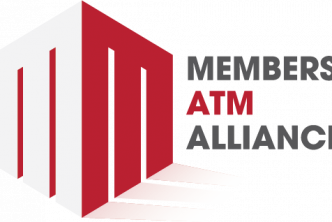A new survey by Nerd Wallet includes alarming facts about the number of Americans with serious financial concerns caused by the pandemic. Among the numbers: “Close to seven out of 10 Americans (69%) say their household income has been negatively impacted by COVID-19, including 80% each of millennials (ages 24-39) and Gen Zers (ages 18-23).”
Richard Miller, JMFA Senior Executive Vice President of Sales has insight on what credit unions will see in overdraft programs in the article below.
Due to the impact the spread of coronavirus has had on the U.S. economy thus far, unemployment claims have surged well beyond expectations. More than 33 million applications for unemployment benefits have been filed since measures were taken in mid-March to combat the pandemic, according to Department of Labor data. This doesn’t account for individuals who are newly unemployed, haven’t yet filed for unemployment benefits or who may be impacted before the pandemic subsides.
As restaurants, retail stores, recreational facilities and travel-related businesses remain closed or operate on a limited basis due to the pandemic, many individuals and families continue to struggle with how to pay for rent, groceries, medication, insurance and other necessities. With continued uncertainty in other affected industries, the economic impact on consumers continues to become more widespread.
In such uncertain times, your account holders need reliable programs and services to help them meet their ongoing financial obligations and provide for their families. Unfortunately, overdraft programs that are based solely on analytics and data aren’t prepared to address the situation many people find themselves in today.
Non-disclosed service parameters lead to confusion and limit financial certainty
Due to unexpected reductions in work hours, furloughs and layoffs, some account holders—many of whom have never had an interruption in their paychecks—are experiencing lower than normal, or no regular checking account deposits. An overdraft program with variable limits—that change based on a pre-determined algorithm—automatically reduces an individual’s access to overdraft coverage when his or her balance dips below a certain level. Or, the privilege is removed completely, at a time when it is needed most.
Programs based solely on analytics also lack the ability to provide personalized service or consider important aspects of a person’s overall financial health or extenuating circumstances — such as the ability to repay — or something as financially devastating as the situation so many Americans find themselves in today.
Without knowing what their overdraft limit will be from one day to the next—or if they will have protection at all, how can consumers feel confident making the necessary purchases they may need to get through the uncertain weeks and months ahead?
Are you providing your account holders with financial peace of mind?
As you consider all the reasonable and prudent steps you can take to assist those who are affected by the coronavirus, consider this: Now, more than ever, they may need the option of an overdraft service they can rely on and trust. A consumer-focused overdraft strategy provides clear disclosures, ongoing communication and guidance to help individuals solve their financial challenges with features like:
- upfront program details;
- fully disclosed limits;
- reasonable fees;
- neutral transaction posting order that does not maximize fees;
- on-going communication regarding account status;
- access to other services provided to meet individual circumstances; and
- tracking that alerts your institution to potential situations where credit counseling may be beneficial.
Address uncertainty with services that provide financial stability
There’s a lot of speculation in the industry about how the coronavirus pandemic might change the way financial institutions operate going forward. One thing that shouldn’t change is the ongoing commitment to providing fully disclosed services to help consumers who may be hit with unexpected financial situations or need extra support during these difficult times.
When all is said and done—and things return to a more stable situation— will your account holders be able to look back on how your institution’s overdraft solution provided the support and service they needed? The measures you take today can strengthen the value you provide and give them confidence that you’ll be there should unexpected financial circumstances happen in the future.
JMFA has expertise on the issues that affect financial institutions and is committed to providing the latest information to help our clients reach and exceed their goals through printed material, webinars and speaking engagements.






